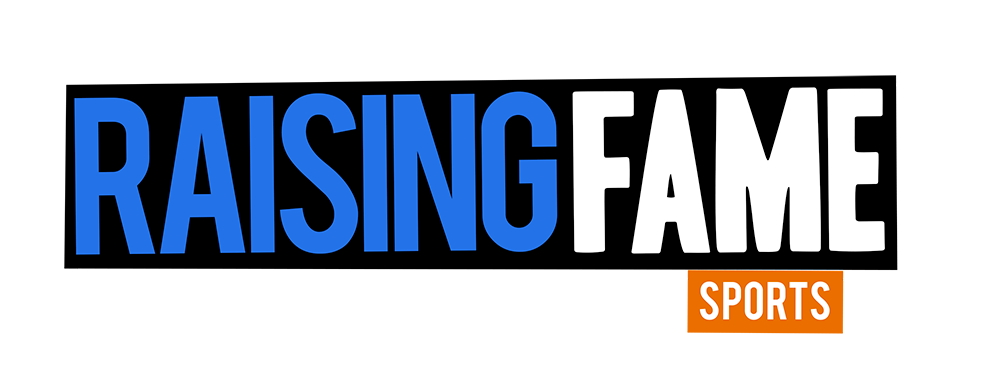Tracy Chutorian Semler of Raising Fame spoke with Michael Twery, PhD, about the impact of sleep on athletic performance in young people. Dr. Twery is Director of the National Center on Sleep Disorders Research at the National Heart, Lung, and Blood Institute, a division of the National Institutes of Health.
RF: How important is adequate sleep for athletic performance — and does the answer vary with the athlete’s age?
MT: Sleep is a vitally important, non-negotiable requirement for health and well-being. It affects our physical health, our emotional regulation, how we think, and our interpersonal relationships. All of these factors relate to athletics – at all ages. If your physical health is impaired; if your emotions aren’t steady; if your thought processes are off; and if your ability to relate to other people isn’t strong, you cannot perform optimally as an athlete.
RF: How do you define “adequate” sleep?
MT: Research has shown that sleep deficiency has three components: duration, schedule, and quality. For duration, adults need 7-8 hours of sleep per night. Children and teens need 9-10 hours per night. By around age 20, most people can move to the adult range of 7-8 hours of sleep. But the important thing is to do it consistently. This is the “schedule” piece of the puzzle. It doesn’t work to get 5 hours of sleep for three days in a row, and then make up for it with extra sleep on the fourth night. That’s not how it works. That’s why a sleep schedule is important. Going to bed and waking up at the same time each day—both on school days and on weekends—is a big part of getting adequate sleep. Many factors—our hormones, our metabolism, our body temperature all change in preparation for sleep. If we change the time we go to sleep, it’s a form of stress on the body, and the moving parts don’t work together properly. Even an hour or two shift can throw the body off.
RF: How do you define part three of the puzzle—“quality” sleep?
MT: We refer to good sleep habits as “sleep hygiene,” and two of the biggest factors are darkness and cool temperature. Lowered body temperature is part of the metabolic cycle in preparing for sleep. It’s also important to avoid stimulants like nicotine, caffeine and alcohol for about five hours before going to sleep. Blue lights –the kind found on computers and cell phones—are particularly bad before sleep. The part of the retina in back of the eye where we sense light has sensors that detect these lights, and send a waking signal to other parts of the brain and in turn suppress the secretion of melatonin, the hormone that helps us sleep. Living in unsafe or loud areas can interfere with sleep, as can the many forms of entertainment and social media that keep people awake on their phones and computers at night. Spending time outdoors helps promote good sleep – so outdoor athletes expending energy in the fresh air may find it easier to get good sleep than those who are more sedentary. Research shows that people who spend more time outdoors in natural sunlight are less sensitive to indoor light.
RF: What’s the first thing to fail in terms of athletic performance when you don’t get enough sleep?
MT: The two things that fail first are motivation and interpersonal relationships. Also our emotional reserve for handling stressful situations weakens. Without inspiration and motivation and the ability to deal with stress, athletic performance is significantly impaired. Furthermore, sleep is essential for learning new tasks. If an athlete learns something new on the court or the field or in the pool, for example, and then he or she gets inadequate sleep, the new lesson may not “stick.” Furthermore, the factors that we associate with being awake—vigilance, alertness—diminish when you don’t get enough sleep. Vigilance and alertness are very important for athletic performance. Even a single night with poor sleep can hurt your reaction time and your speed. You will notice that pro teams try to travel to their next location at least a night before their competition in order to get into a good sleep routine there. It takes one to two days to fully adjust to every hour of time change!
RF: If you break up your sleep into several naps totaling the right number of hours per night, does it have the same positive effect?
MT: Unfortunately not. The best effect comes from sustained high quality sleep rather than several short bursts. Researchers measure the sleep cycle on something called a “hypnogram” which shows various sleep stages. If you don’t sleep long enough, you don’t hit all of the needed stages for healthy hormonal output.
RF: Apart from poor athletic performance, are there any actual dangers to athletes who get inadequate sleep?
MT: Maybe yes. A new study showed that special operations soldiers who get two hours less sleep than needed were more than twice as likely to report muscle injuries as those who got the right amount of sleep. It is quite possible that we would see the same thing in athletes—this needs to be studied. Remember, too, that judgment is a big part of success in athletics. We know that a lack of sleep impairs judgment, so in young athletes who already lack experience, the added lack of judgment from poor sleep could lead to sports errors and injuries.
RF: Does lack of sleep make a difference for both recreational and elite athletes?
MT: Yes. These days, athletes at all levels are pushed to the edge of emotional and physical perfection, and a lack of sleep can impair performance at all levels. And there’s no way around it. Even with other factors in place—good nutrition, training, hydration etc. – poor sleep will still negatively impact athletic performance.
RF: What physical changes occur with poor sleep?
MT: Within a few days of not getting enough sleep, our bodies’ ability to manage glucose (blood sugar) weakens. We develop insulin resistance. This in turn impacts our energy. The hormones that regulate our appetite change, giving us a preference for fatty and sugary foods like donuts instead of apples. When athletes make poor nutritional choices, their performance drops. So a lack of sleep can hurt athletic performance through its secondary impact on hormones, energy and nutrition as well.
RF: Are there gender differences in the impact of poor sleep?
MT: There are reports that in terms of weight gain, girls may be more sensitive to the metabolic effects of poor sleep than boys are. But this needs further study.
RF: What’s your advice for athletes who have trouble falling asleep before major competitions?
MT: It’s the same advice I give to anyone who is having trouble falling asleep. Preparation is the first step: start getting ready for sleep an hour before you actually get into bed. Get into bed at your normal hour, making sure your room is dark and cool. Avoid stimulants for several hours before bedtime, as mentioned earlier. Get off screens two hours before sleep. Take a warm bath or shower, because you will cool off afterwards, and feeling cool helps promote sleep. I also recommend other soothing activities such as breathing exercises, yoga and meditation for people who are especially anxious before a big competition. For a helpful breathing technique, try googling “4-7-8 breathing.” Based on an ancient Yogic technique, and also known as “relaxing breath,” the idea is to breathe in for four seconds, hold the breath for seven seconds, and exhale for eight seconds. This pattern helps to tamp down anxiety and also promotes sleep.
RF: Do melatonin products work?
MT: Melatonin has a “pulse release” in our bodies, and for people with a healthy rhythm, it peaks with a signal that tells the rest of the body it’s time to prepare for sleep. Exposure to bright lights before sleep – even the light of a TV, and especially blue and some green lights – suppresses the pulse of melatonin in our bodies. Instead of pulsing, it comes out flatter and confuses our bodies. For some people, taking a melatonin product can be helpful. If you take it at the right time, about one hour before preparing for bed, it can create a pulse like the body is naturally supposed to do.


